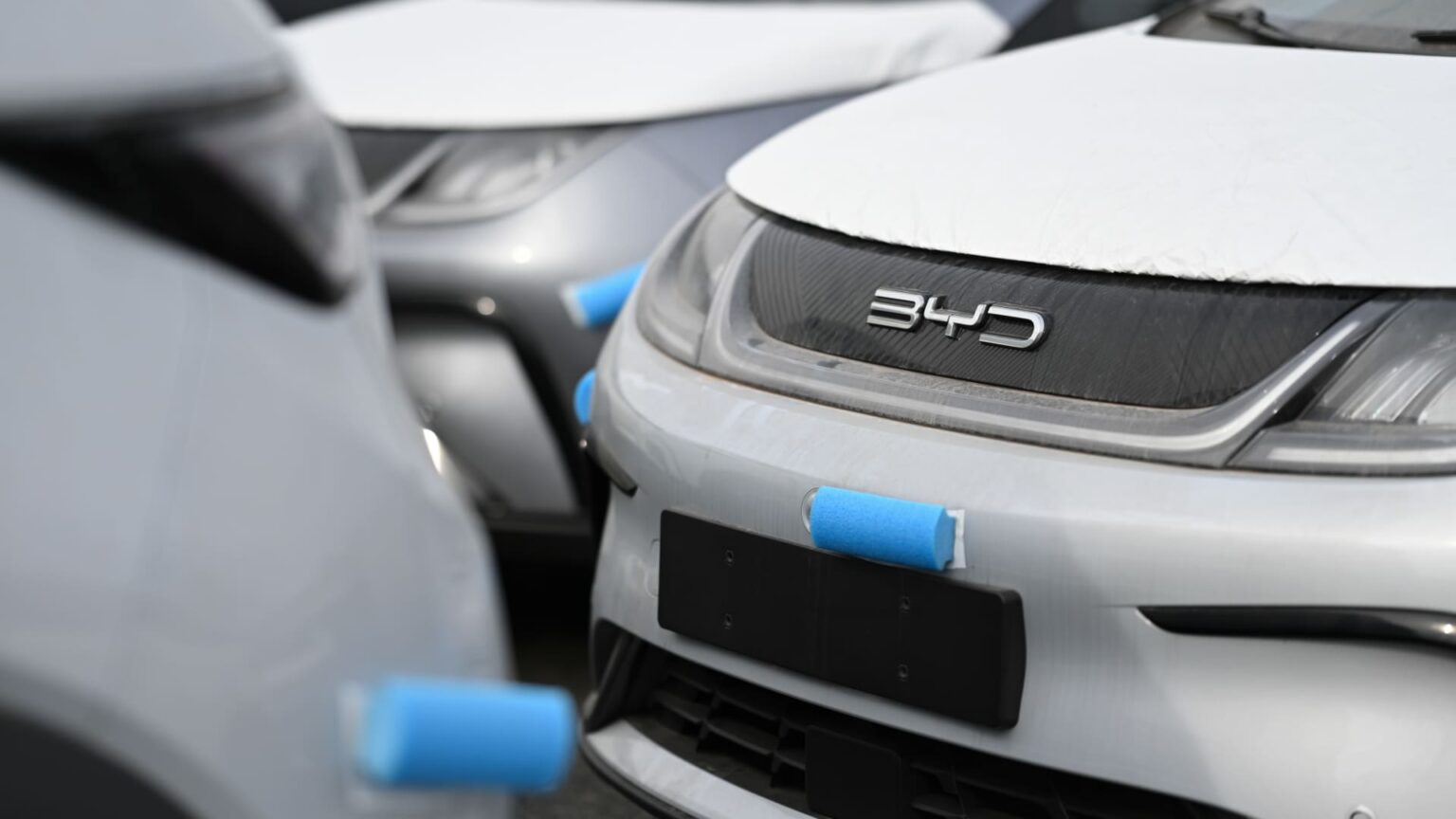New cars of the “Dolphin” model from Chinese car manufacturer BYD are in port.
Image unity | Image unity | Getty Images
Shares of Hong Kong-listed Chinese electric vehicle makers fell on Tuesday as concerns about price wars in the sector grew.
China’s EV market, the world’s largest and most crowded, is seeing fierce competition from local players like American giants. Tesla To gain as much market share as possible through promotions and price cuts.
“While across-the-board price cuts will continue to put pressure on bottom-line revenues and margins, this could be offset by increased demand as EVs broaden their appeal to a wider range of consumers,” said Yuqian Ding, China Auto Research. Head of HSBC. Qianhai told CNBC.
While consumer interest is improving, the “wait for better price” sentiment continues to limit sales volume for EV makers, Ding said.
At least 30 percent of China’s entire auto market consists of electric vehicles, with most EVs coming from domestic brands.
On Tuesday, most Chinese EVs continued to face pressure. Shares listed in Hong Kong Lee Auto fell to 3.9%, however take it Shares fell 3.6% and Exp It was down 1.8%. BYD Shares were up 0.4%.
Neo is set to report its December quarter earnings later in the day.
A slice of China’s EV pie
Competition has intensified in the country’s EV space, with local automakers pushing American rival Tesla to come up with fancy tech and competitive pricing.
Tesla on Friday announced new incentives to attract customers in China, including discounts on car insurance products, and limited-time-only preferred financing plans.
Despite previously announced price cuts, Tesla still lost market share in China in January, especially in major cities, according to Morgan Stanley.
Li Auto launched a new EV called the “Mega” – a multi-purpose vehicle priced at 559,800 Chinese yuan ($77,756), and scheduled to begin deliveries in March. The minivan is equipped with a built-in refrigerator and a sofa.
Le Auto said last week that it delivered 20,251 vehicles in February, up 21.8 percent from a year earlier. However, month-on-month deliveries were down 35 percent from 35,165 vehicles in January.
Stellar– Backing up Leap motor According to the South China Morning Post, the prices of its new EV version of the C10 SUV have been reduced by almost 20 percent, compared to the presale price.
“We reiterate that Leap Motor prices its vehicles based on production costs,” SCMP reported, citing Leapmotor founder and CEO Zhu Jiangming.
Morgan Stanley research showed that Xpeng and Nio lost share in all regions, while BYD saw gains in major cities but losses in less developed regions, where it saw increased competition from state-owned players.
Analysts at the US investment bank said Le Auto’s market share fell in the final quarter of 2023, as investors continue to monitor whether growth will come from the new model launched last week.
BYD in good position
BYD is slashing prices of various EV models and on Monday launched a new version of its best-selling car.
According to Reuters, the company’s Yuan Plus crossover, known overseas as the Eto 3, was priced lower than its closing forecast.
“BYD has unmatched cost structure and product innovation capabilities, which stem from its high degree of vertical integration and will enable the company to thrive in the ongoing EV race in China and abroad,” Bernstein analyzed. Nigar wrote in a client note.
Bernstein expects China’s EV market to see steady demand growth of around 25% year-on-year, amid “ongoing price pressures” amid increased competition.
In an official statement released at China’s highly-anticipated “two-session” summit on Tuesday, Beijing said its efforts to promote the new energy sector through various measures – including reductions or exemptions from purchase taxes for EVs, construction and Other infrastructure measures were supported. “37.9% Increase in New Energy Vehicle Sales in 2023.”
According to the document, “To ensure smooth logistics flow, we supported 10 additional cities serving as national integrated freight hubs to strengthen operation chains.”
Just last week, Chinese President Xi Jinping called for more support for the development of new energy vehicles, especially by building charging infrastructure.
— CNBC’s Elaine Cheng contributed to this story.
